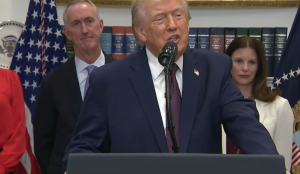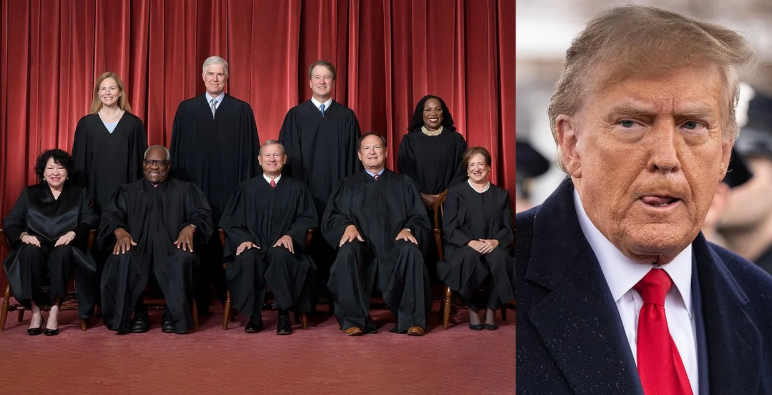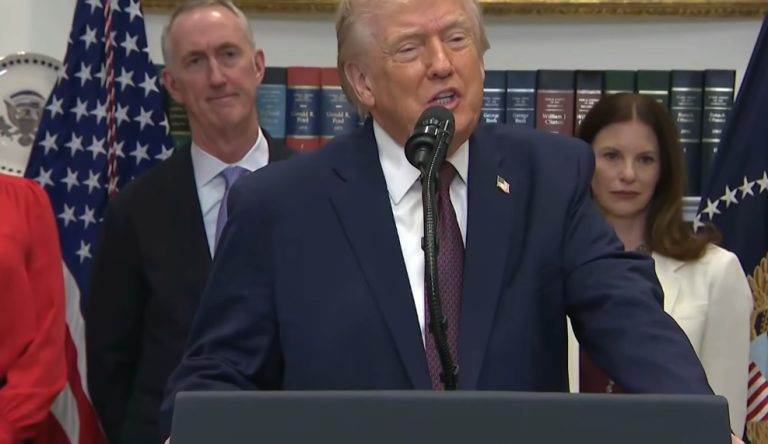In March 2025, the Trump administration took the unprecedented step of invoking the Alien Enemies Act (AEA) of 1798 to justify the deportation of Venezuelan nationals alleged to be affiliated with the notorious Tren de Aragua gang. This controversial use of a nearly 230-year-old statute, originally designed for wartime measures, sparked a significant legal and political firestorm. The invocation raised serious constitutional questions, prompted multiple lawsuits, and ultimately led to court rulings that challenged the administration’s approach to immigration and due process. This article explores the historical background of the AEA, the Trump administration’s actions, ensuing legal challenges, and the broader implications for immigration law and civil liberties in the United States.
Historical Background: What Is the Alien Enemies Act?
The Alien Enemies Act, part of the broader Alien and Sedition Acts enacted in 1798, was originally intended as a wartime measure granting the President authority to detain and deport nationals of hostile nations during times of declared war. Specifically, the Act allows the government to classify individuals from enemy nations as “alien enemies” and take measures against them without the typical protections afforded by immigration laws.
For over two centuries, the AEA was largely dormant, invoked only sporadically during declared wars — notably during World War II when Japanese, German, and Italian nationals faced internment and deportation. Importantly, these actions were taken within the context of formal declarations of war and under a legal framework that included some degree of due process, even if limited.
The 2025 Invocation: Deporting Venezuelan Nationals
In early 2025, the Trump administration designated Venezuelan nationals alleged to be members of Tren de Aragua, a violent criminal gang with ties to organized crime and drug trafficking, as “alien enemies.” Utilizing the Alien Enemies Act as legal grounds, the administration began deportation proceedings, effectively bypassing standard immigration removal processes and the usual procedural safeguards.
The administration’s rationale was that the Venezuelan nationals posed a significant security threat to the United States and that their gang affiliations justified swift removal under the Act’s broad wartime powers. However, critics quickly pointed out that the U.S. was not at war with Venezuela, and thus, the legal basis for invoking the AEA was highly questionable.
Legal Challenges: Lawsuits Questioning the Administration’s Authority
The use of the Alien Enemies Act in this context immediately faced backlash from civil rights advocates and legal experts. The American Civil Liberties Union (ACLU), along with Democracy Forward, filed lawsuits challenging the legality of the deportations. One prominent case, J.G.G. v. Trump, argued that the administration had exceeded its authority by applying the AEA without a formal declaration of war and by denying individuals their constitutional right to due process.
Central to the plaintiffs’ argument was that the Alien Enemies Act requires an official war declaration to be lawfully invoked, a condition not met in this instance. Moreover, the plaintiffs contended that deporting individuals without removal hearings, access to legal counsel, or the ability to contest the government’s allegations violated the Fifth Amendment protections against deprivation of liberty without due process of law.
These lawsuits represented a broader pushback against the administration’s aggressive immigration enforcement tactics, emphasizing the importance of procedural fairness and constitutional safeguards even in cases involving alleged criminal activity.
District Court Ruling: Temporary Restraining Order Against Deportations
U.S. District Judge James Boasberg responded to the lawsuits by issuing a temporary restraining order (TRO) that halted the deportations under the Alien Enemies Act. In his ruling, Judge Boasberg underscored that the administration could not circumvent established removal proceedings and due process protections.
Judge Boasberg stated that while the government has considerable authority over immigration and national security, such powers are not unlimited. The ruling emphasized that even when the AEA is invoked, constitutional rights such as the right to a hearing and legal representation cannot be summarily dismissed. The judge’s TRO effectively blocked the deportation of Venezuelan nationals designated as alien enemies until the courts could fully evaluate the legality of the administration’s actions.
Appeals Court Hearing: Questions of Due Process and Legal Precedent
Following the district court’s ruling, the Trump administration appealed to the U.S. Court of Appeals for the D.C. Circuit. During oral arguments, Judge Patricia Millett expressed significant reservations regarding the administration’s reliance on the AEA without providing due process protections.
Judge Millett noted that even during World War II — the most prominent period of AEA use — affected individuals were granted more procedural safeguards than those currently afforded under the 2025 deportation efforts. The judge’s questioning highlighted concerns about the constitutional balance between national security and individual rights.
The appeals court’s hearing reflected the complex legal tension between executive power in matters of immigration and national security, and the judiciary’s role in ensuring that constitutional rights are upheld regardless of the political context.
Supreme Court Involvement: Emergency Appeal and Temporary Halt
In a further escalation, the Trump administration filed an emergency appeal with the Supreme Court seeking to reinstate deportations under the Alien Enemies Act. The Supreme Court responded by issuing an order temporarily halting deportations while it considered the emergency appeal.
The Supreme Court’s intervention underscored the gravity and urgency of the legal issues at stake, bringing the centuries-old Alien Enemies Act back into the national spotlight and igniting debate over executive authority, immigration enforcement, and civil liberties.
Broader Implications and Analysis
The Trump administration’s use of the Alien Enemies Act in 2025 represents a dramatic reinterpretation of a dormant statute in an unprecedented immigration enforcement context. This event highlights several important legal and policy issues:
1. Limits of Executive Power
The administration’s invocation of the AEA raised fundamental questions about the scope and limits of presidential power. The Act was designed for wartime emergencies and requires a formal war declaration, a condition absent in the Venezuelan deportation case. The administration’s move suggested a broader interpretation of executive authority that could potentially bypass established legal processes.
2. Due Process and Constitutional Rights
The lawsuits and court rulings reinforced the principle that constitutional rights to due process apply even to non-citizens accused of criminal affiliations. The government’s obligation to provide fair hearings and legal representation remains critical, underscoring the judiciary’s role as a check on executive overreach.
3. Immigration Enforcement and National Security
The case illustrated the tension between protecting national security and respecting individual rights within immigration policy. While the government must address threats posed by criminal gangs and foreign actors, its methods must align with legal standards and constitutional protections.
4. Historical Lessons
The 2025 controversy evokes memories of World War II-era internments, reminding policymakers and courts of the risks of excessive executive action based on national origin. The courts’ insistence on due process reflects a broader commitment to preventing civil liberties violations rooted in fear or political expediency.
Conclusion
The Trump administration’s 2025 invocation of the Alien Enemies Act to deport Venezuelan nationals alleged to be Tren de Aragua gang members sparked a landmark legal battle over the scope of executive authority and constitutional protections in immigration enforcement. The ensuing lawsuits, court rulings, and Supreme Court involvement reaffirmed the importance of due process rights and the requirement that emergency powers be grounded in clear legal authority.
As the United States continues to grapple with immigration and national security challenges, the 2025 Alien Enemies Act episode serves as a critical reminder of the balance that must be maintained between protecting the nation and upholding the rule of law. The courts’ role in preserving this balance remains as vital today as it was over two centuries ago when the Alien Enemies Act was first enacted.

James Jenkins is a celebrated Pulitzer Prize-winning author whose work has reshaped the way readers think about social justice and human rights in America. Raised in Atlanta, Georgia, James grew up in a community that instilled in him both resilience and a strong sense of responsibility toward others. After studying political science and creative writing at Howard University, he worked as a journalist covering civil rights issues before dedicating himself fully to fiction. His novels are known for their sharp, empathetic portraits of marginalized communities and for weaving personal stories with broader political realities. Jenkins’s breakout novel, Shadows of Freedom, won national acclaim for its unflinching look at systemic inequality, while his more recent works explore themes of identity, resilience, and the fight for dignity in the face of oppression. Beyond his novels, James is an active public speaker, lecturing at universities and participating in nonprofit initiatives that support literacy and community empowerment. He believes that storytelling is a way to preserve history and inspire change. When not writing, James enjoys jazz music, mentoring young writers, and traveling with his family to explore cultures and stories around the world.









